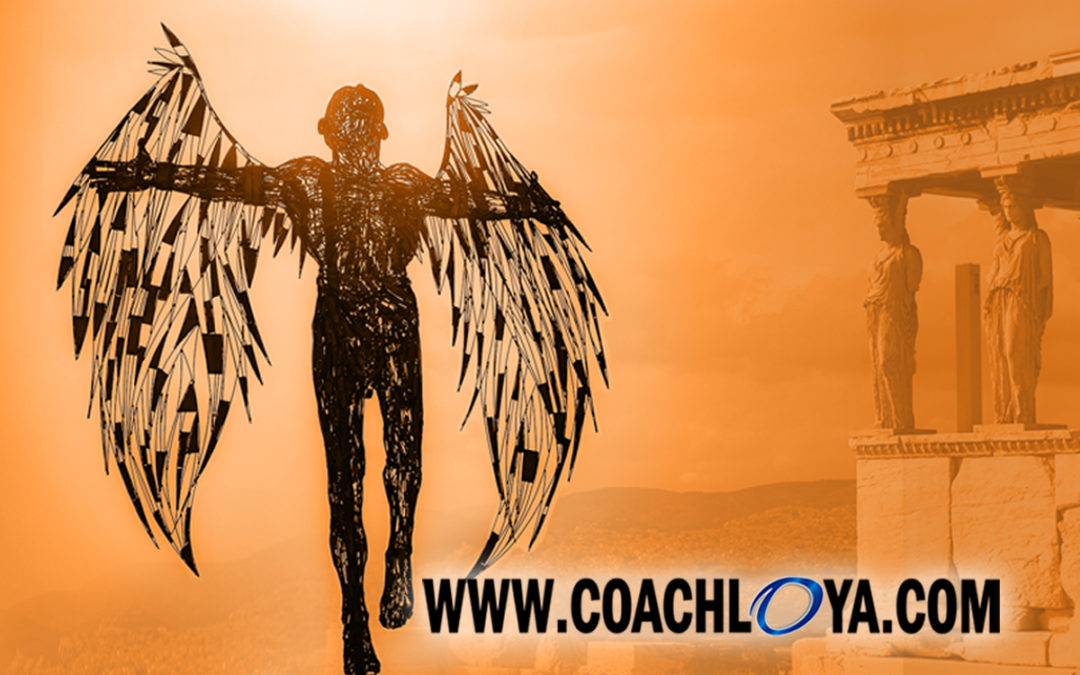In Greek mythology, the story of Icarus is often used to warn of the perils of hubris (excessive confidence).
Icarus was the adolescent son of Daedalus, a skilled artisan whom King Minos of Crete hired to build the Labyrinth that protected the palace from the menacing half bull, half man Minotaur.
After falling in disfavor with Minos, Daedalus and Icarus are imprisoned on the island. Daedalus devises a clever plan to escape Crete by fashioning wings for himself and his son from feathers they had gathered.
Before taking flight, however, Daedalus warns Icarus not to fly too close to the sun nor too close to the sea, lest the heat of the sun would melt the wax holding the feathers together and the spray of the sea would weigh them down.
Icarus initially heeds his father’s advice, but soon becomes enamored by his newfound prowess. He soars higher and higher until his wings are eventually scorched by the sun, causing him to tumble from the sky and drown in the sea below.
The ancient Greeks considered hubris to be among the most dangerous character flaws. Hubris typically triggered the wrath of the gods and led to tragedy because it was viewed as an arrogant attempt to overstep mortal limitations.
Icarus teammates—team members with excessive, reckless confidence—can trigger similar wrath on their teams.
Icarus teammates don’t consider the effect the risks they take have on the rest of their team. They are cavalier with their decisions, giving little aforethought to the possibility of collateral damage. Much like their namesake, they overlook the consequences of flying too close to the proverbial sun.
In the business world, modern day examples of the damage caused by Icarus teammates can found in the tragic stories like Enron, Adelphia, and WorldCom. In the sports world, examples are found in recruiting violations, doping scandals, and point shaving.
Confidence is a necessary component of team success, as is the acceptance of inherent risk. Progress requires risk. To borrow a baseball analogy, you can’t steal second with your foot on first.
So how can a team member exhibit the confidence to take risks without becoming an Icarus teammate?
You avoid hubris by doing the following:
- Educate yourself on the potential negative consequences of your actions. Don’t act impulsively, carelessly, or cluelessly.
- Consider how your actions will impact the entire team and not just you individually—before you act. An ounce of consideration can save a pound of regret.
- Seek the advice of someone wiser, more experienced, and capable of being emotionally objective about the situation. Had Icarus listened to Daedalus, his story would not have ended in tragedy.
By committing to being thorough, properly prepared, and only engaging in calculated risks, you limit the probability of being an Icarus teammate and increase the potential of being a good teammate.
As always…Good teammates care. Good teammates share. Good teammates listen. Go be a good teammate.





